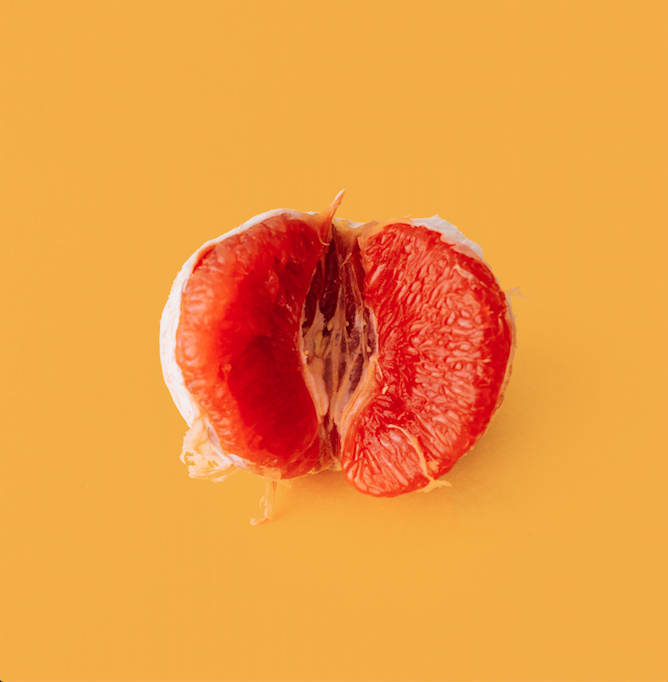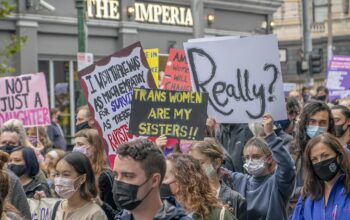Unclean, impure, dirty, gross, taboo, embarrassing.Those “positive” words are usually used as describers when it comes to period concerns. Nowadays, periods still have negative meanings in societies all around the world whatever the social classes, origins or geographical localization. Most women on earth are concerned by this taboo surrounding this normal body function. Issues come when sometimes this stigma and the lack of access to menstrual products have terrible consequences.
What is that? Yes, it is red blood
Period as a monthly event appears when blood and tissues from the uterus are coming out of the vagina. It usually appears during the puberty period between 12-14 years old, or even earlier/later. As an average, a woman has between 4 and 5 days of bleeding which represents 2250 days of her life, in other words seven years of period. This mean a lot of time spending to wonder about having a pad or a tampon, where to find one, how to hide it, how to handle the pain or even how to make sure that you don’t have a stain on your pants (we all have this story asking to our bestie.s to check our back).
This discomfort regarding periods is mainly represented through how the media are representing this monthly surprise in most women’s lives. The market of “feminine hygiene products” represents a huge source of money, between 20,6 billion $ and 37,5 billion $ and it is estimated to 52 billion $ in 2023. In most of the ad for menstrual products, the periodic blood is blue instead of red. As an important source of information, media with their audience are powerful as they influence the representation of period. This blue blood, as misrepresenting the reality, sends a confusing message and reinforces this vision of disgust towards period; whereas blood is regularly shown when it is not coming from a vagina such as in horror films, medical series, war movies…. However, some companies are taking action such as the ad campaign Blood Normal which aims to show the real red blood and to deconstruct all the stigmas surrounding menstruation to make it normal. But despite this rise of awareness, shame and stereotypes are still deeply settled.
Globalized stereotypes and a dramatic lack of menstrual hygiene
Those stigmas and beliefs about periods can have bad consequences in terms of education, job access, health and more. In addition, some countries or even religions have specific beliefs that are fueling the global shame about menstruation for girls. In Iran, as a sign of misinformation, 48% of girls believe that period is a disease. In Japan, women are not allowed to become sushi masters because it is said that menstruation causes an “imbalance in taste”. Moreover, in India, during their period women are not allowed to be in the kitchen and cannot water plants because the myth says they can poison food. Also in the country, buying pads is expensive and also taboo, 90% of women in rural areas don’t have access to it. As a result, 28% of girls are not going to school and instead they are using dangerous objects to catch the blood such as newspaper, ash, wood shavings, and more. In Nepal, there is a practice named Chhaupadi that aims to banish menstruate women and send them in dangerous outdoors called ‘menstruation huts” owing to the impurity of the period. Even if this practice has been banned recently, it’s still continued in fact, mostly in rural areas. This tradition implies risks of rape, disease or even death as shown by recent cases of girls bitten by snakes. In Nepal as well as India, during this time of the month, women are not allowed to enter in “clean” and holy places like temples.
Also, women in western countries are concerned by this taboo. In England, almost 138 000 girls are missing school because they cannot afford menstrual products. In many states in the United States, pads and tampons are considered “luxury good”. In Western countries, homeless women are mostly confronted with the dilemma between buying food or buying menstrual products. In addition, another effect of this spread of negative vision of menstruations is the “period shaming”. This period shaming can lead to suicide, some people might think it’s hard to believe it but it’s a reality. In 2017 a 12 years old Indian girl killed herself after her teacher humiliated her because of a stain due to menstruation. Same story in 2019 with a 14 year old Kenyan school girl who had her first period during school lesson was reportedly branded ‘dirty’ and expelled from the classroom. Period is normal, natural, and healthy and some initiatives try to defy this global taboo.
Period as a political issue: a rise of actions
Facing those issues, some people have decided to take actions. In India, a man named Arunachalam Muruganantham, has invented a machine that dispenses menstrual products at a low cost in order to increase access for women in his country despite the people’s opposition in his village. Moreover, numerous humanitarian collections have been settled around the world to respond to this need like in France (Règles Élémentaires) or the association Period which aims to fight against “period poverty”. Also, on a larger scale, some politicians have tackled this health issue. Recently, Scotland has been the first country in the world to provide free pads and tampons. Indeed, almost 10% of girls in UK are not able to afford menstrual products and some are using unhygienic products such as rags, toilet paper or newspapers because of the expansive price of pads and tampons. Before this, the state of New York was one of the first to announce that all public schools in the state will dispense free tampons and pads in order to fight menstruation taboos and make school safe and comfortable for girls.
Access to menstrual hygiene should represent a main issue in the global agenda as it is hard for women to confront this event with safety and dignity. Also, menstruation includes numerous other problems such endometriosis or toxic shock syndrome scandal. One of the solutions might be a cultural change in order to normalize menstruation and destroy taboos around this natural process. Of course, it is taking time because those stereotypes are deeply rooted in our societies. Menstrual hygiene must be a right and girls should not be blamed or shamed about it, on the contrary it should be a normal to easily access menstrual products, sanitation and hygiene. Period is a cultural power, changing perceptions about it will help to change the rules of the game and to empower women as it normally should be.
by Pauline Zaragoza
Photo Credits
peeled pomelo, Charles Deluvio
melting popsicle, Erol Ahmed
Nepal, World Bank Photo Collection, CC BY-NC-ND 2.0










